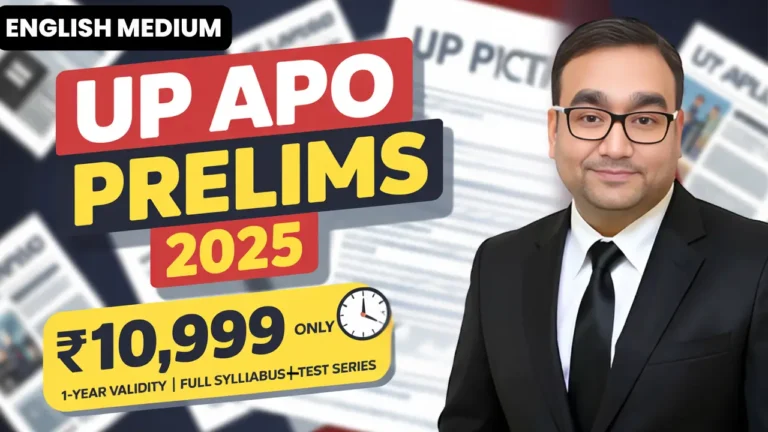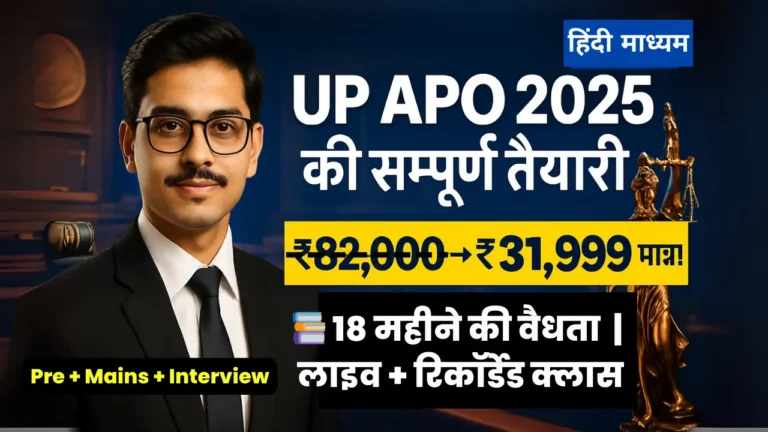Delhi Judicial Services Interview Tips are essential for excelling in the final stage of DJS selection. This comprehensive guide provides preparation strategies, communication tips, and key qualities to help aspirants ace the interview and secure their position as judicial officers.
The Delhi Judicial Services (DJS) Interview is the final and most crucial stage of the selection process for aspiring judicial officers in Delhi. After successfully clearing the Preliminary and Mains examinations, the interview tests not only your knowledge of the law but also your personality, communication skills, and judicial temperament. Preparing for this stage requires strategic planning, self-awareness, and a strong grasp of current legal and societal issues.
This comprehensive guide outlines proven strategies, essential tips, and resources to help you ace the Delhi Judicial Services Interview in 2025.
Table of Contents
Understanding the Interview Process
The DJS Interview, also known as the viva voce, is conducted by a panel of experts comprising senior judges, legal scholars, and administrative officers. The interview typically lasts 20-30 minutes and carries significant weight in the final merit list.
1. Objectives of the Interview
- To evaluate your legal knowledge and practical application.
- To assess your personality, demeanor, and decision-making ability.
- To understand your awareness of societal and constitutional issues.
2. Scoring Criteria
The interview panel assigns marks based on:
- Depth of legal knowledge.
- Clarity of thought and expression.
- Confidence and composure.
- Ethical considerations and judgment.
Key Qualities Assessed in the Interview
1. Legal Knowledge
- A strong understanding of substantive and procedural laws, including the Constitution, IPC, CPC, CrPC, and Evidence Act.
2. Analytical and Reasoning Skills
- Ability to analyze complex legal issues and provide logical solutions.
3. Communication Skills
- Clear articulation of thoughts and confident responses.
4. Judicial Temperament
- Impartiality, patience, and the ability to remain composed under pressure.
5. Awareness of Current Affairs
- Knowledge of recent judgments, legal reforms, and socio-legal issues.
Preparation Strategies for the Interview
1. Revise Core Subjects
Focus on foundational laws like:
- Constitutional Law: Key articles, fundamental rights, and recent amendments.
- Criminal Law: Provisions of IPC, CrPC, and Evidence Act.
- Civil Law: CPC, Contract Law, and Property Law.
2. Stay Updated on Current Affairs
- Read newspapers like The Hindu or Indian Express daily.
- Follow legal news on portals like LiveLaw and Bar & Bench specially the top 100 judgements of last 2 years.
3. Prepare Answers to Common Questions
Draft responses for frequently asked questions, such as:
- “Why do you want to join the judiciary?”
- “How would you handle ethical dilemmas as a judge?”
4. Strengthen Your General Knowledge
- Prepare for socio-economic and legal developments with resources like PIB.
- Focus on recent Supreme Court and High Court judgments.
Common Questions Asked in the DJS Interview
1. Legal Questions
- Explain the difference between murder and culpable homicide.
- What is the doctrine of res judicata?
- Discuss the admissibility of electronic evidence under the Indian Evidence Act.
2. Hypothetical Scenarios
- How would you handle a case where both parties accuse each other of perjury?
- What steps would you take if you suspect bias in a subordinate court’s judgment?
3. Personality-Based Questions
- What motivates you to join the judiciary?
- How do you handle criticism or high-pressure situations?
4. Current Affairs
- Your opinion on recent Supreme Court judgments.
- Views on judicial transparency and accountability.
Improving Communication and Presentation Skills
1. Practice Articulation
- Speak clearly and confidently during mock interviews.
- Avoid filler words like “um” and “uh” to maintain professionalism.
2. Focus on Body Language
- Maintain a straight posture and make appropriate eye contact.
- Avoid fidgeting or overly expressive hand movements.
3. Active Listening
- Pay close attention to the panel’s questions before answering.
- Seek clarification if needed to avoid misunderstandings.
Building Judicial Temperament
Judicial temperament is critical for a judge’s role. Develop this quality by:
- Practicing Patience: Engage in activities like meditation or yoga to enhance calmness.
- Remaining Impartial: Avoid bias and focus on facts when evaluating hypothetical scenarios.
- Balancing Empathy with Objectivity: Show understanding for litigants while adhering to legal principles.
Mock Interviews: Importance and Execution
Mock interviews help simulate the real interview environment. Benefits include:
1. Identifying Weak Areas
- Highlight gaps in knowledge or communication skills for improvement.
2. Building Confidence
- Familiarize yourself with the interview process to reduce anxiety.
3. Receiving Constructive Feedback
- Seek feedback from mentors, peers, or professional coaching institutes.
Ethics and Professionalism in the Interview
- Dress Appropriately: Wear formal attire such as a suit or a saree.
- Be Honest: If unsure of an answer, admit it gracefully rather than guessing.
- Show Respect: Address the panel respectfully and maintain a polite demeanor.
Authoritative Backlinks for Interview Preparation
- Supreme Court Judgments Repository: Access landmark rulings at Supreme Court of India.
- Delhi Judiciary Exam Notifications: Stay updated via Delhi High Court.
- Legal Current Affairs: Follow LiveLaw for daily legal updates.
- Interview Strategies: Explore tips at Doon Law Mentor.
FAQs
1. How should I prepare for the DJS interview in a short time?
Focus on revising core legal subjects, practicing common questions, and staying updated on current affairs.
2. What is the weightage of the interview in the final selection?
The interview carries significant weight and can make a difference in securing a position.
3. How can I improve my legal knowledge for the interview?
Use resources like Bare Acts, legal commentaries, and online portals like LiveLaw to stay informed.
4. What if I don’t know the answer to a question?
Admit honestly that you are unsure but express willingness to learn or research.
5. Are mock interviews necessary?
Yes, they help build confidence, improve communication, and simulate the real interview environment.
Conclusion
Cracking the Delhi Judicial Services Interview in 2025 requires a combination of legal acumen, self-confidence, and a professional demeanor. By understanding the panel’s expectations, practicing extensively, and focusing on key qualities like judicial temperament and ethical integrity, you can maximize your chances of success.
Stay dedicated, keep refining your skills, and approach the interview with confidence. Best of luck on your journey to becoming a judicial officer!
#DelhiJudicialServices #JudiciaryInterview #DJS2025 #JudicialExamPrep #LawCareers #DelhiJudicialService #DJS







